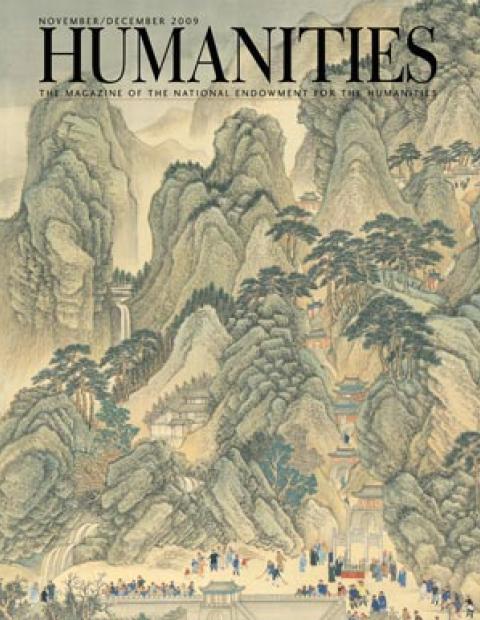Ask Peter Gilbert about the biggest challenge in offering humanities programs in Vermont and he immediately brings up the state’s famously wintry weather.
“The weather is a challenge,” he says, laughing. “We sometimes have to cancel programs because of a big snowstorm.”
In Vermont, it isn’t just the snow. It’s the rural nature of the state itself, says Gilbert, who, as a former sled-dog musher and director of the Vermont Humanities Council in Montpelier since 2002, doesn’t mind the winter a bit. “Programs have to be decentralized. You can’t do them in one place and expect to draw a large number of people.”
But the small state, with its population spread thinly across its 251 towns, villages, and small cities—the largest, Burlington, has a population of around 38,000—has advantages too. “Our small communities are so vital and our people so civically engaged,” Gilbert says. “Individuals really feel that they can make a difference here.”
Those advantages include being able to draw from an enviable pool of talent for council programs. Joseph Ellis, James M. McPherson, Ken Burns, David Macaulay, and Anthony Zinni are just a few of the luminaries who have participated. “Vermont is a special place that people want to visit,” Gilbert says. “Lots of people have connections here. They live here; they have second homes or friends here; they vacation here. We benefit from that.”
Vermonters are now benefiting from the council’s First Wednesdays program, which was created by Gilbert, with the program’s director, Aline White. White worked for the Montpelier library, and one day when she was returning some books to Gilbert at the council’s offices, he told her he dreamt of creating a regular lecture program “so that all Vermonters would have access to free, regular programming near to them.” White, who is a consultant to the council, and Gilbert work to shape an “eclectic, compelling series,” Gilbert says. “There should be something for everyone.”
Over the next year, the First Wednesdays lecture series will offer seventy-two opportunities for Vermonters to attend a lecture on the first Wednesday of each month at libraries all around the state. Programs include: “Hamlet Contemplates the Bust of Aristotle,” “The Intimate Privilege of Being with the Dying,” “Why Stephen King Still Matters,” “Iran and the Obama Administration,” and “In Search of Nirvana: Rock-’n’-Roll Religion.”
Gilbert said he knew First Wednesdays was succeeding when he ran into a man on the street in Montpelier who said that his favorite First Wednesdays programs were the ones he knew absolutely nothing about. “I thought that was great,” Gilbert says. “He attends because he’s confident he’ll learn something.”
A former litigator and teacher of English and history at Phillips Academy, in Andover, Massachusetts, Gilbert also has been senior assistant to the president and associate provost at Dartmouth College. Since 1992, Gilbert has served as Robert Frost’s literary executor.
An avid reader and writer whose sunny Montpelier office is filled with art by contemporary Vermont painters and figurines of the American presidents, Gilbert also shares his and the council’s interests with the state through his commentaries on history and literature on Vermont Public Radio. Those interests include stone-wall building—Gilbert is currently building a stone wall on his property—and international travel. Gilbert is a former rock climber and mountaineer.
This fall, as part of Vermont Reads, a statewide, one-book community reading program, sixty Vermont communities are participating in discussions and programming related to When the Emperor Was Divine by Julie Otsuka. And addressing a topic of great importance to the residents of a once primarily agricultural state now enriched by gourmet eateries, small organic producers, and the localvore movement, the council’s annual conference this year offers “Food for Thought,” looking at food and the future, and literary, artistic, religious, and cultural aspects of food, as well as hosting cooking demonstrations and tastings.
“I see our mission as engaging members of the public when books and curiosity and learning haven’t necessarily been a part of their experience,” Gilbert says. “The humanities keep us alive. They help us make order and meaning out of our lives, out of the narrative we’re in the midst of—our own. The experience may be vicarious through literature or knowing history, but it can inform how you look at and understand the present.”


